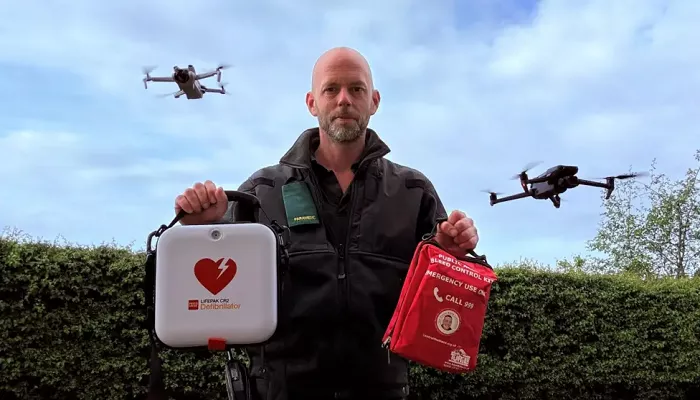A paramedic in Lincolnshire is launching a new project to use drones to deliver life-saving medical equipment to emergency scenes faster than ambulances can arrive.
Trevor Wain, from Market Deeping, has applied to the Civil Aviation Authority (CAA) for permission to begin testing drone flights that could carry equipment such as defibrillators, EpiPens, and bleeding control kits.
Wain, who has worked as a paramedic in Lincolnshire for a decade, says the rural layout of the region makes it difficult to reach patients quickly. He believes drones could bridge that gap.
“In cardiac arrest cases, every minute counts. For every minute without help, the chance of survival drops by 10%,” Wain explained. “Even if an ambulance gets there in seven minutes, a drone arriving just two minutes earlier could give someone a 50-50 chance.”
His plan includes drones equipped with two-way communication and video cameras, similar to smart doorbells. This would allow medical professionals to guide members of the public while they use the equipment.
Wain said a recent emergency convinced him of the need for the project. A defibrillator was available but arrived too late, and when opened, it had no pads. “In that moment, a drone could have saved a life,” he said.
The project comes as East Midlands Ambulance Service (EMAS) continues its push to expand public access to defibrillators. EMAS works with the British Heart Foundation and the national defibrillator database, The Circuit, to install and monitor defibrillators across communities.
Mick Barnett-Connolly, head of community response at EMAS, emphasized the importance of early CPR. “Immediate, high-quality CPR by a confident bystander gives people the best chance of survival,” he said.
Across the UK, pilot projects are also exploring drone delivery of blood and chemotherapy. Wain said United Lincolnshire Hospitals Trust has expressed interest in other future uses of the technology, if his project succeeds.


